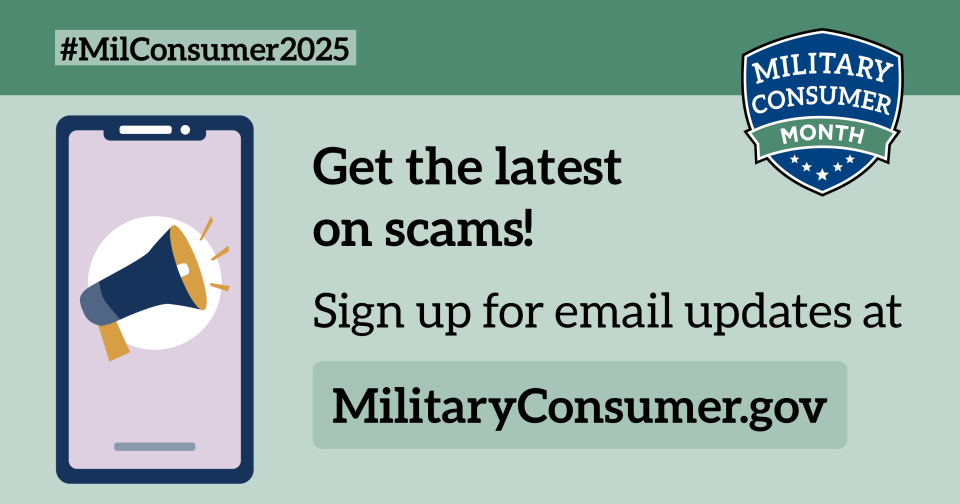Military servicemembers, veterans, and their families sacrifice a lot to keep our country safe. In the spirit of protecting those who’ve served, the Federal Trade Commission invites you to talk about scams with your battle buddies. Looking for ways to share what you know and protect someone else from a scam? The FTC’s got your six.
Sometimes people don’t even know they’ve experienced a scam until they’ve already lost money. Military consumers reported losing $584 million to fraud in 2024 — an enormous loss. That’s why, throughout the month of July, the FTC is giving you tools to raise the volume on practical advice to help yourself — and your buddies — spot, avoid, and report scams. Here’s where to start:
- At your next battalion huddle, bring up a scammy text about problems with an online order or money owed on an account. Use it to explain how scammers send unexpected messages to steal your personal information and your money.
- Before a deployment, brief your loved ones about scammers that use social media to send urgent messages about fake problems or supposed once-in-a-lifetime investment opportunities.
- Remind older veterans in your community to slow down before responding to unexpected phone calls and emails. Tell them only scammers insist you pay in specific ways, like using cryptocurrency, wiring money through a company like MoneyGram or Western Union, using a payment app, or by putting money on a gift card.
- Know someone who accidentally paid a scammer? Show them how to try and get their money back.
Check MilitaryConsumer.gov/MCM2025 every week in July to get graphics, blogs, and social media messages to start conversations like these. Encourage everyone you know to report scams to the FTC at ReportFraud.ftc.gov.

